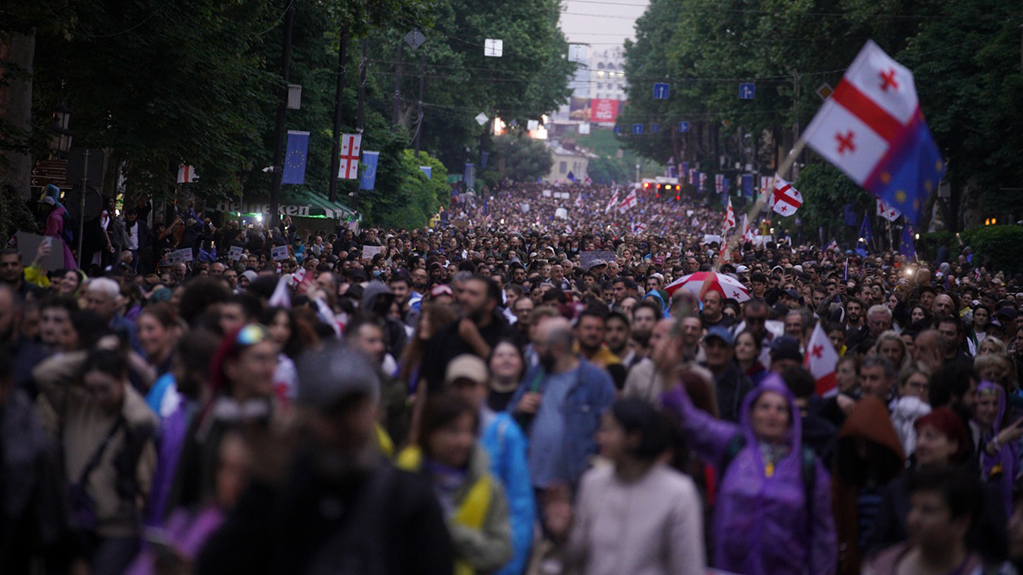In Tbilisi, tens of thousands of people are participating in a march against the Russian Law and in support of Georgia's European course. The march began from three different locations, and citizens, carrying the flags of Georgia and Europe, are gathering in Europe Square.
News
Trending stories
- 1 Former Prime Minister Garibashvili Sentenced to Five Years in Prison After Plea Deal
- 2 Otar Partskhaladze Charged with Organizing Murder of Businessman Levan Jangveladze
- 3 Shalva Papuashvili Says Georgian Dream Filed Complaint with BBC
- 4 Georgian Dream Party Further Tightens Grants Law, Introducing Up to 6 Years in Prison
Among the participants in the march are opposition politicians, business activists, and representatives of non-governmental organizations. According to them, they have not seen so many people on the streets of Tbilisi for a long time.
"The government should realize that regardless of its actions or methods, the Georgian people are pro-European and will never become part of Russia. These people will do everything to ensure our European future. This is a fact. Therefore, let's not adopt these Russian methods. The sooner we avoid them, the better, otherwise all the aggression that emanates from Russia will be directed at us. We are not just discussing a law; we are discussing the direction in which they are taking the country - towards Russia. This decision must be reversed," said Eka Gigauri, the head of Transparency International Georgia.
Before today's march, a campaign of intimidation against the participants of the protests had been ongoing for several days. Civil activists and representatives of the opposition were physically assaulted. Unknown individuals pasted insulting, defamatory, threatening, and inciting posters near the residences and offices of heads of non-governmental organizations and journalists, and also damaged their cars. Additionally, opponents of the Russian Law, including their young children and retired parents, received phone calls in which they were cursed and threatened. These acts of violence, considered terrorism, were not addressed by the government, and no one was held accountable, raising doubts about the government's involvement.
Georgian Dream plans to adopt the Russian Law in the third and final reading next week. The law will be discussed in the Legal Affairs Committee of the Parliament starting at 9:00 a.m. on Monday, May 13, and will be brought to the plenary session for voting the next day.
In parallel with the consideration of the law, a delegation from the parliaments of several EU countries will arrive in Georgia. On May 14, US Assistant Secretary of State James O'Brien will visit Tbilisi.
On April 3, 2024, Georgian Dream once again initiated the Russian Law on so-called Foreign Agents in the parliament. This law had been withdrawn a year ago following thousands of protests, with a promise to never accept it again. The Russian Law requires independent media and non-governmental organizations that operate with grant support from international funds and cannot be controlled by the government or related groups to register as Foreign Agents. More than 150 non-governmental and media organizations issued a statement that they will not register in the "defamation register" under any circumstances.















